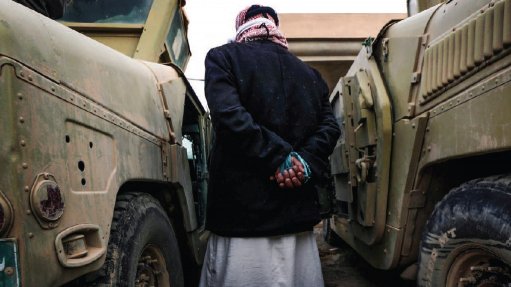
The armed forces of the Iraqi government and the Kurdistan Regional Government (KRG), supported by various international partners, including the United States and Iran, have almost concluded their military campaign against the Islamic State (also known as ISIS) in Iraq. In the course of this campaign, Iraqi government and KRG forces have detained thousands of suspected ISIS fighters and affiliates, including hundreds of children.
The judiciaries of the Iraqi government and the KRG are relying on their respective counterterrorism courts to rapidly prosecute all of these ISIS suspects on charges brought under their counterterrorism laws, primarily and often exclusively on the charge of membership in ISIS, with no distinction made for the severity of the charges brought against suspects and no effort to prioritize the prosecution of the worst offences. One Iraqi judge at the Nineveh counterterrorism court, which is mandated to prosecute ISIS members captured in Mosul, said that between February and late August 2017, the court had commenced trials against 5,500 ISIS suspects, and convicted and sentenced at least 200.
Human Rights Watch knows of at least 7,374 individuals that the Iraqi and KRG judiciaries are trying or have convicted and in 92 cases already executed since 2014, while recognizing that this represents a fraction of the total number of individuals held as ISIS suspects.
This report focuses on the screening, detention, investigation and prosecution of ISIS suspects in Iraq. At each of these stages, the report finds serious legal shortcomings that undermine efforts to bring ISIS fighters, members, and affiliates to justice.
Most significantly, Human Rights Watch research finds an absence of a national strategy for ISIS prosecutions that will ensure the fulsome and credible prosecution of those responsible for the most serious crimes committed by ISIS, with the meaningful participation of victims and the creation of a thorough judicial record of these crimes. At the same time, the very broad prosecution of all those affiliated with ISIS in any way, no matter how minimal their involvement, will impede future community reconciliation and reintegration and clog up Iraqi courts and prisons for decades to come.
Report by the Human Rights Watch